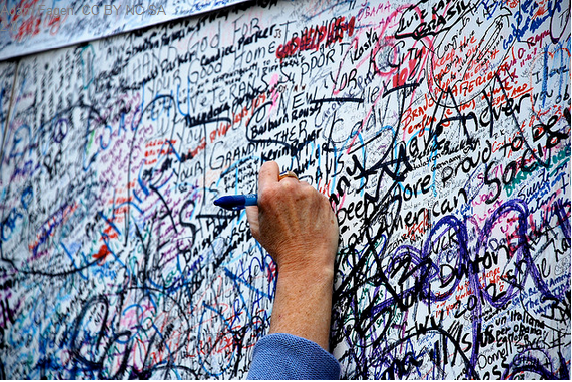Activism and the Internet
by Digital Rights LAC on June 30, 2014
MIGUEL LAGO*
“What you promote is couch-activism” This is a phrase that everyone who has used the Internet as a platform for civic mobilization has heard. The logic of it is interesting, and, at first glance, it seams to make sense. A click on its own does not reflect or suggest a great deal of engagement in a cause. After all, if a cause matters, we will do much more for it that a click right? Yes, if the material conditions the world provided for each citizen were perfect. Yes, if the citizen didn’t need to work, or pay bills. The degree of direct participation that went into democratic decisions in Athens was only possible because of slavery and the fact that Athenian citizens did not need to work. There was no scarcity of time. So, how to open more fronts for participation in and democratize modern societies, or go beyond voting, in the current job market which makes “free time” a scarcity? The Internet may be the solution for this problem.
The existing criticism towards couch-activism, which undervalues the “online” mobilizations, tens to come from a few intellectuals and activists, who can make the time to engage themselves, because of the reality of their work schedule, where it be professionally (working in NGOs, in academia), or in correlation with their profession. Thus it is possible to participate in assemblies, meetings, engage in more long-term, continuous ways, in issues that really take more time to be addressed. Unfortunately, this is not the reality of most workers, who, in Brazil, must comply with their mandatory 44-hour weeks, as well as the average displacement time from home to work in metropolitan areas, of on average 1 hour. This represents at least 50 hours dedicated solely to your work. As such, discussing full involvement is all well and good, but not everyone can go out to the streets in the afternoon, or fit in an amphitheater where a forum is being held, because unfortunately people have to work. And while people are working there will always be a group of select few who participate in political life.
In this context, the great advantage of digital activism is that it breaks such space and time barriers. You can participate at any given time, at the level of engagement that your time and workload allow for. You can participate from home, from work, from the bus. And if you only have 5 minutes a day to participate, the Internet allows you to do so. Online activism is the only way to assure the democratic inclusion of the majority of the working population in political participation. It is the only means, in the current social arrangement, to assure that the maximum amount of people participate.
In Brazil’s case, it is clear that online activism, even tough it can be inclusive, is also exclusive, as a great deal of the population does not yet have access to the Internet. But this is an increasingly declining trend. And its better to have a declining trend than the permanent exclusion that time and space generate.
But access to the Internet is not enough to include people. It is essential to make good use of the Internet. In fact, complaints which don’t channel demands, or voice causes, do not generate change. Networks for mobilization such as Avaaz, Change, All Out and Meu Rio are able to help people articulate their demands, connect them to decision makers to whom these must be voiced, and create a solidary community to deal with several causes. It is up to these networks to try different experiments and interfaces of calibrated participation in order to configure the right level of engagement that each worker can handle.
And it works. In just 2 years the Meu Rio Network allowed locals to alter the State’s constitution, prevent the appointment of candidates with civil or criminal condemnations for direct or indirect Public Administration positions, prevent a flexibilization of environmental legislation, enable the creation of a police precinct specialized in disappearances, and avoid the demolition of the 10th largest school in the country. In 2 years, more than 30 public policy changes were made in the city.
Online activism is what gives Brazil a chance to continually and consistently democratize political disputes, which, for a long time, remained in the hands of forerunners and elites. The “we are few, but we are strong” must and shall be replaced by “we are many, and we are transformers”.
*COORDINATION OF THE NGO “MEU RIO”






